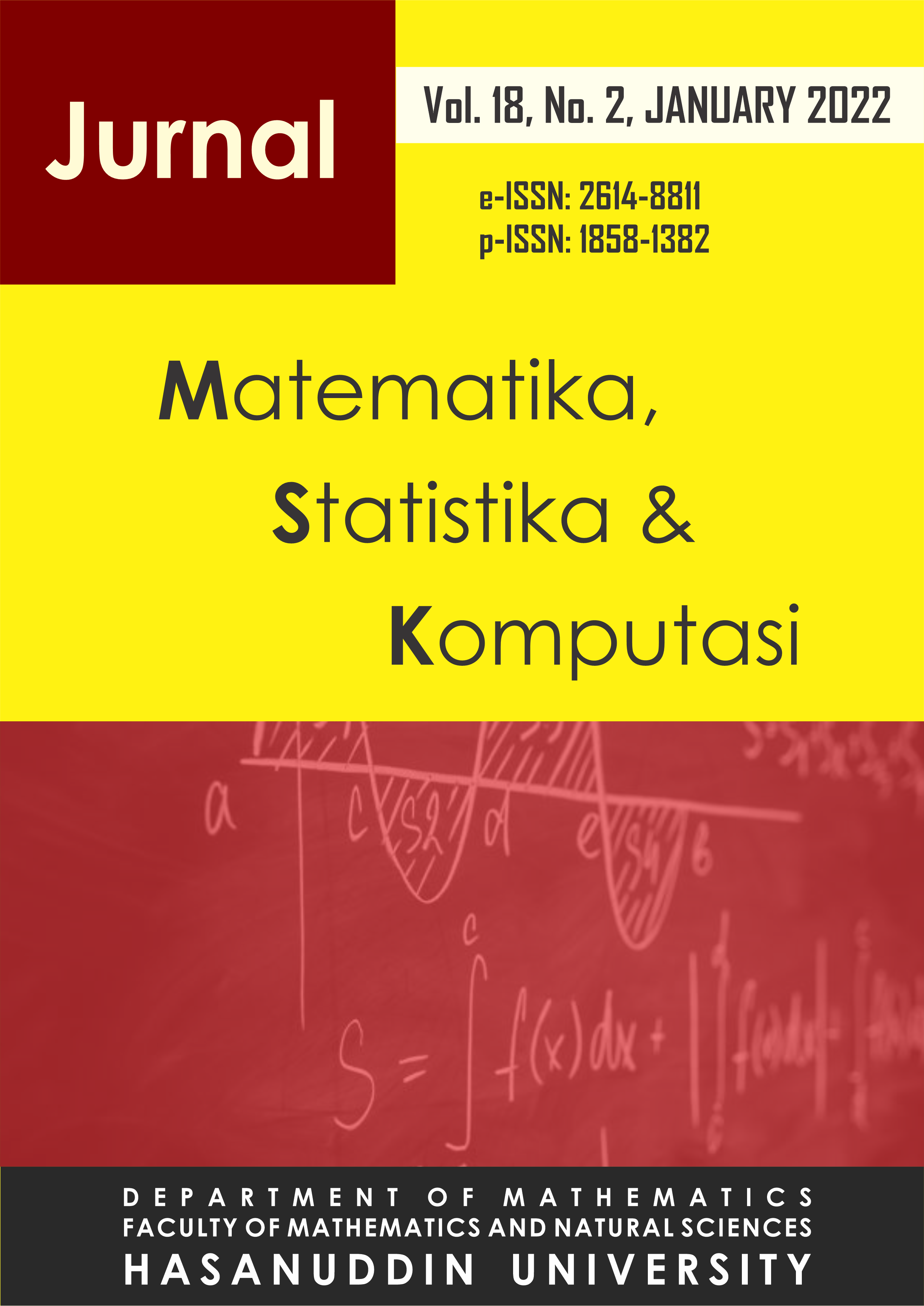Determinants of Development Achievements on District/City of Central Java in 2019
DOI:
https://doi.org/10.20956/j.v18i2.18811Keywords:
development achievement, Human Development Index (HDI), spatial regressionAbstract
In 2019, Badan Perencanaan Pembangunan Nasional (Bappenas) awarded Central Java as the province with the best Perencanaan dan Pembangunan Daerah (PPD). However, if it is reviewed at the district/city level, it shows that there are still many areas that have low development achievements. In accordance with the United Nations Development Programme (UNDP) proposal, the Human Development Index (HDI) is used as an indicator of the achievement of district/city development whose calculations are good enough to describe development from both a social and economic perspective. The large difference in HDI between districts/cities in Central Java and the distribution of development achievements are still centered around the provincial capital, namely Semarang City, this indicates the occurrence of inequality in development achievements at the district/city level in Central Java. Because the observations in this study are districts/cities in Central Java, the linkage between district/city causes spatial autocorrelation. Therefore, spatial regression model is used to determine the model that has spatial autocorrelation. This study aims to determine the achievements of development and its determinants in the districts/cities of Central Java in 2019 using the spatial regression analysis method. From the results of the study, it is known that there is a dependence on development achievements between districts/cities in Central Java which is influenced by the regional capacity factor is characterized by PAD and economic growth; operational resource factors characterized by DAU, DAK and technology; and the level of poverty.
References
Adam Smith, 1776. An Inquiry into the Nature and Causesof the Wealth of Nations. Methuen & Co. LTD., London.
Ali Muhammad, 2009. Pendidikan Untuk Pembangunan Nasional Menuju Bangsa Indonesia yang Mandiri dan Berdaya Saing Tinggi. PT Imperial Bakti Utama, Bandung.
Anselin L., 1988. Spatial Econometrics: Methods and Models. Kluwer Academic Publishers, Netherlands.
Fauzi F., 2017. K-Nearset Neighbor (K-NN) dan Support Vector Machine (SVM) untuk klasifikasi Indeks Pembangunan Manusia Provinsi Jawa Tengah. Jurnal MIPA, Vol. 40. No. 2, 118-124.
Fischer M. M. & Wang J., 2011. Spatial Data Analysis: Models, Methods and Techniques. Springer, Heidelberg.
Gujarati D.N., 2003. Basic Econometrics: Fourth Edition. McGraw-Hill, New York.
Halim A. & Damayanti T., 2007. Pengelolaan Keuangan Daerah. UPP STIM YKPN, Yogyakarta.
Hosmer D.W. & Lemeshow S., 2000. Applied Logistic Regression. Sons Inc., United States of American.
Irman M. & Purwati A. A., 2020. Analysis On The Influence Of Current Ratio, Debt to Equity Ratio and Total Asset Turnover Toward Return On Assets On The Otomotive and Component Company That Has Been Registered In Indonesia Stock Exchange Within 2011-2017. International Journal of Economics Development Research (IJEDR), Vol. 1. No. 1, 36-44.
Keynes J.M., 1936. The General Theory of Employment, Interest and Money. Harcourt Brace, New York.
LeSage J. & Liano C., 2016. A Spatial Interaction Model with Spatially Structured Origin and Destination Effects. Springer International Publishing, New York.
Mirza D.S., 2011. Pengaruh Kemiskinan, Pertumbuhan Ekonomi dan Belanja Modal terhadap IPM Jawa Tengah. Jurnal Ekonomi dan Kebijakan, Vol. 4. No. 2, 102-113.
Nurkse Ragnar, 1961. Problems of Capital Formationin Underdeveloped Countries. Oxford University Press., New York.
Oates W.E., 1993. Fiscal Decentralization and Economic Development. National Tax Journal, Vol. 46. No. 2, 237-243.
Sasana Hadi, 2009. Peran Desentralisasi Fiskal Terhadap Kinerja Ekonomi di Kabupaten/Kota Provinsi Jawa Tengah. Jurnal Ekonomi Pembangunan, Vol. 10. No. 1, 103-124.
Schumpeter J., 1934. The Theory of Economic Development. An Inquiry into Profits, Capital, Credit, Interest and the Business Cycle. Harvard University.
Soejoto A., Subroto W.T. & Suyanto Y., 2015. Fiscal Desentralization Policy in Promoting Indonesia Human Development. International Journal of Economics and Financial, Vol. 5. No. 3, 763-771.
Suparmono, 2004. Pengantar Ekonomika Makro: Teori, Soal dan Penyelesaiannya. UPP AMP YKPN, Yogyakarta.
Todaro M.P. & Smith S.C., 2004. Pembangunan Ekonomi di Dunia Ketiga (edisi kedelapan). Erlangga, Jakarta.
Widyastuti Y., 2020. Pengaruh Dana Perimbangan, Belanja Modal, Pendidikan dan Teknologi Terhadap Indeks Pembangunan Manusia (Studi Empiris pada Pemerintahan Provinsi se-Indonesia Tahun 2015-2017). (Skripsi). Universitas Muhammadiyah Surakarta, Surakarta.
Yasin Muhammad, 2020. Analysis of Original Regional Income and Construction Expense On Economic Growth In District and Jawa Timur City. Journal of Economic, Business and Accounting, Vol. 3. No. 2, 465-572.
Downloads
Published
How to Cite
Issue
Section
License
Copyright (c) 2021 Author and publisher

This work is licensed under a Creative Commons Attribution 4.0 International License.

This work is licensed under a Creative Commons Attribution 4.0 International License.
Jurnal Matematika, Statistika dan Komputasi is an Open Access journal, all articles are distributed under the terms of the Creative Commons Attribution License, allowing third parties to copy and redistribute the material in any medium or format, transform, and build upon the material, provided the original work is properly cited and states its license. This license allows authors and readers to use all articles, data sets, graphics and appendices in data mining applications, search engines, web sites, blogs and other platforms by providing appropriate reference.







